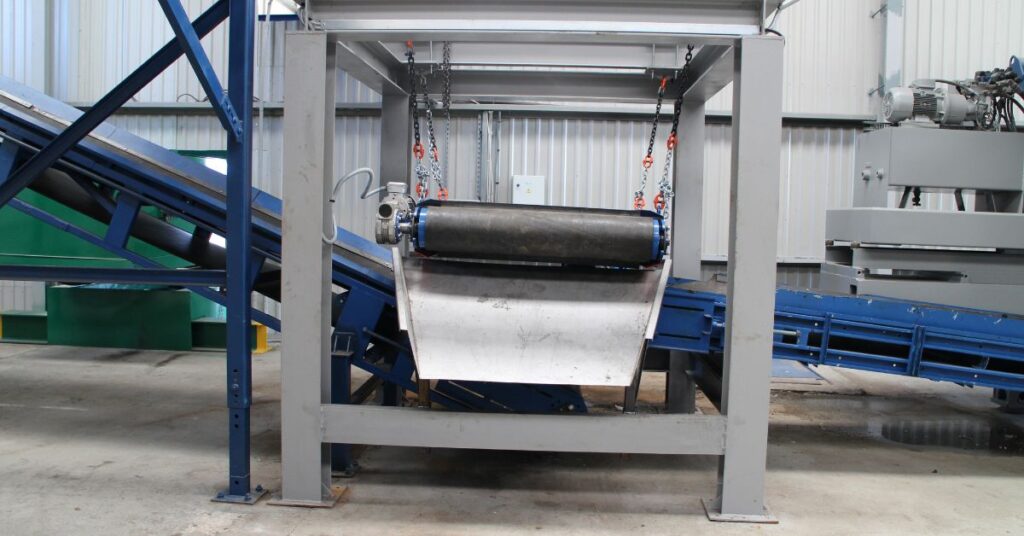In many industries, the presence of metal contaminants can lead to significant issues, including damage to machinery, compromised product quality, and safety hazards. To mitigate these risks, conveyor systems often integrate metal detectors to ensure that unwanted metal fragments are detected and removed before they can cause any harm. Conveyor metal detectors provide a critical layer of protection for both products and equipment.
How Conveyor Metal Detectors Work

A conveyor metal detector is a specialised device that identifies the presence of metal contaminants in products as they move along a conveyor belt. These detectors use advanced technology to sense ferrous and non-ferrous metals, ensuring that even the smallest pieces of metal are detected and removed. The metal detector conveyor system is designed to work seamlessly with conveyor belts, allowing for continuous, uninterrupted operations.
In industrial settings, metal detectors in conveyor belts are critical for preventing contamination. These detectors work by scanning the materials passing through the system and alerting operators if any metal is detected. This allows for the removal of the contaminated product before it causes damage or poses a risk to consumers.
The Benefits of Belt Metal Detectors
One of the key benefits of using a belt metal detector is its ability to detect a wide range of metal types, including stainless steel, iron, and aluminium. This versatility makes it ideal for industries such as food processing, mining, and manufacturing, where metal contamination can pose serious risks.
In addition to detecting metal contaminants, industrial metal detector conveyors also help improve the efficiency of production lines. By automatically identifying and removing contaminated products, these systems reduce the need for manual inspections, saving time and labour costs. Moreover, the consistent performance of metal detectors ensures that quality standards are met, protecting both the product and the brand.
Metal Detectors in Various Industries
The application of conveyor belt cleaning systems goes hand in hand with metal detection. Regular cleaning and maintenance of conveyor belts are essential for ensuring that metal detectors function optimally. By removing debris and contaminants from the belt, businesses can reduce the likelihood of false alarms and improve the accuracy of the metal detection process.
In industries like recycling and mining, conveyor belt separators and conveyor separators are used alongside metal detectors to ensure that non-metallic materials are separated from metal fragments. This combination of technologies ensures that the conveyor system operates efficiently, with minimal interruptions.
Testing for Metal Contaminants
To ensure the effectiveness of metal detectors, regular gauss testing and magnet testing are necessary. These tests measure the strength and performance of the magnetic components within the detection system, ensuring that they are working as intended. Proper testing helps prevent equipment failures and ensures that metal detectors continue to perform accurately over time.
With the integration of metal detectors in conveyor systems, businesses can improve their product quality, protect their machinery, and enhance overall safety. Whether in food processing, manufacturing, or mining, these systems offer reliable solutions for detecting and removing metal contaminants from production lines.